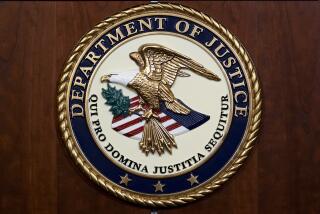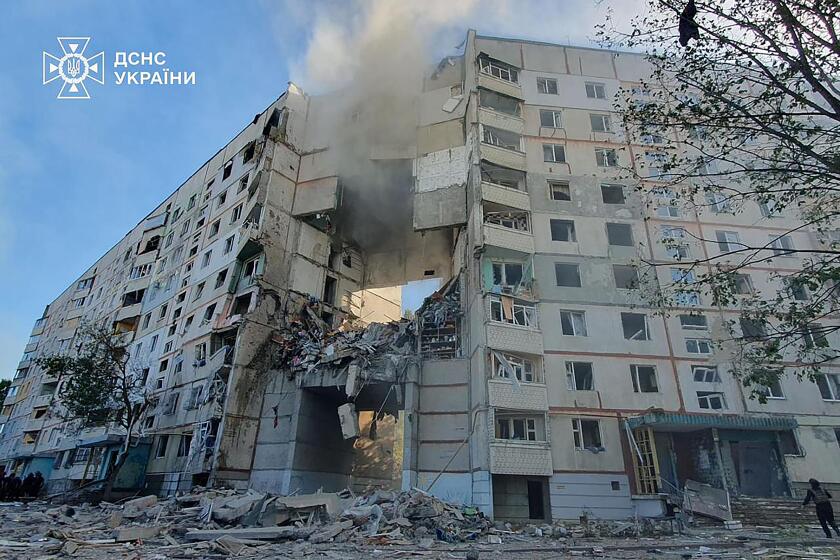Poles angry that U.S. altered missile plans
It hardly seems to matter anymore that Poles had long been leery of playing host to U.S. missile interceptors aimed at defending against long-range threats from Iran. Washington’s decision to back out of the missile shield agreement forged by the Bush administration -- and opposed by Russia -- has evoked memories among Poles of Cold War helplessness, of being brushed aside as casualties of great power politics.
In Poland and among other members of the old Soviet bloc, the U.S. announcement played into a historical sense of uncertainty. Warsaw’s political elite spoke of a visceral fear that the Obama administration is willing to sacrifice Central Europe in its eagerness to repair badly damaged relations with a resurgent Russia.
The indignation is partly fueled by bruised feelings over what many here describe as bungled American diplomacy in breaking the news to Warsaw. But there is also concern over the perception that the United States overhauled its defense strategy in part to appease Moscow. The Kremlin loudly opposed the Bush-era shield plan, viewing the presence of ground-based interceptors in Poland and a radar system in the Czech Republic as a strategic threat.
“It is time now for a mature look, stripped of illusions, at our possibilities and our future,” Polish Foreign Minister Radoslaw Sikorski told Rzeczpospolita newspaper last week. “I think today we all know that if we are to look to somebody, we have to look to ourselves.”
Washington says it is changing plans in response to new intelligence assessments about Iran’s capabilities. But the Obama administration has undeniably been courting the Kremlin in hopes that Russia will ramp up pressure on Iran and North Korea, and cooperate with efforts to pacify Afghanistan. Days after the U.S. scrapped its plans for interceptors in Poland, Moscow signaled a willingness to take a slightly tougher line with Tehran.
The question of Russia’s role in helping drive U.S. policy is a touchy one in this part of the world. It didn’t help that the news broke on a date laden with symbolism for Poles -- the 70th anniversary of the Soviet invasion of Poland.
Nor was it reassuring that Polish officials seemed to be the last to hear about the change in plans.
“We heard first from the media,” said Witold Waszczykowski, deputy head of Poland’s national security bureau. Speculation that the missile shield plan would be dropped had been in the air since the U.S. presidential campaign. And yet, Waszczykowski said, Polish leaders were repeatedly reassured -- even days before a team of U.S. officials arrived to brief officials -- that no decision had been reached.
By the time U.S. officials were ready to discuss their decision, Prime Minister Donald Tusk was so furious he refused to take a midnight call from President Obama.
“Is it appeasement toward Russia? Is it pragmatism? Is it transactional?” Waszczykowski said. In a way, he said, it doesn’t matter. The perception that Russia has shifted U.S. policy toward former bloc countries has dealt a blow to Poland’s sense of security and pride.
U.S. officials say they are bewildered at the Polish reaction, and argue that a missile shield hasn’t been abandoned, but will be altered to defend first against short- and medium-range missiles that require sea-based interceptors. Negotiations continue over possible deployment of Standard Missile-3 interceptors and a Patriot missile battery to Poland.
“It’s not appropriate for me, as American ambassador, to say the people I work for didn’t do something appropriately. And I’m not going to say that,” said Victor Ashe, outgoing U.S. ambassador to Poland. “What happened happened.”
Beneath the angry headlines and crackling talk shows lurks the question of how Poland should position itself at a time when the U.S. is reaching out to “reset” relations with Moscow.
Poles tend to regard Russia as a dormant geopolitical volcano, a source of past hardship and likely harbinger of another, eventual blow.
“People don’t understand. They say it’s a phobia, and it is a phobia, but it’s a phobia based on experience,” said Zbigniew Lewicki, head of American Studies at Warsaw University. “Nobody is worried that Russian soldiers will come marching now, but in 10 years, in 20 years? Russia wants to dominate the world as much as possible, and they have not given up on this part of the world. They still think it belongs to them.”
That brand of sentiment found a more sympathetic ear in Washington during the Bush years. It was at that time that then-President Vladimir Putin began to systematically shut down Russia’s fledgling democracy and speak nostalgically of the Soviet Union. The U.S. in turn enraged Moscow by encouraging pro-Western leaders in former Soviet states.
As neo-Cold War tensions flared, countries such as Poland and the Baltic states relished the realization that they’d crossed to the other side of a fault line. They were members of the EU and NATO. Fear and loathing of Moscow found common cause with hawkish members of the Bush administration, who advocated a kind of quieter containment of resurgent Russian power.
But that order is gone now. Obama appears to take a less ideological and more pragmatic approach to international affairs than his predecessor -- and needs all the help he can get with strategic woes from Iran to Afghanistan.
As Obama visited Moscow during the summer and spoke warmly to Russians of rebuilding damaged relations, Poles waited to hear where they stood. In Warsaw, they pressed State Department officials for answers. “We were pushing: ‘It looks like you made a deal,’ ” Waszczykowski said. “They said, ‘No, it’s not the case.’ The message was, we have to wait.”
In truth, Polish public opinion has long been divided over whether playing host to U.S. missiles -- and provoking Russia -- was a good idea. It wasn’t until Russia invaded Georgia in August 2008 that Poles embraced the idea. Even after the agreement was signed, the Polish parliament never got around to ratifying it.
In recent years, Poland has made some efforts to improve its own, notoriously chilly relations with Russia. Putin came to Poland this month to attend a commemoration of the start of World War II. His visit was seen as an important breakthrough for the two countries.
Lately, a few Poles have been calling on the government to engineer a “reset” of its own.
“We need Russian economy, Russian gas, Russian oil, Russian market,” said Stanislav Ciosek, a longtime Polish ambassador to Russia who now heads the Eastern Club, a trade group in Warsaw. “I have bad feelings toward Polish politicians who can’t release themselves from the fear of Russia. Polish national interest is that our neighbors to the east are happy with what they have and developed -- so they don’t have to reach for ours.”
--
More to Read
Sign up for Essential California
The most important California stories and recommendations in your inbox every morning.
You may occasionally receive promotional content from the Los Angeles Times.










